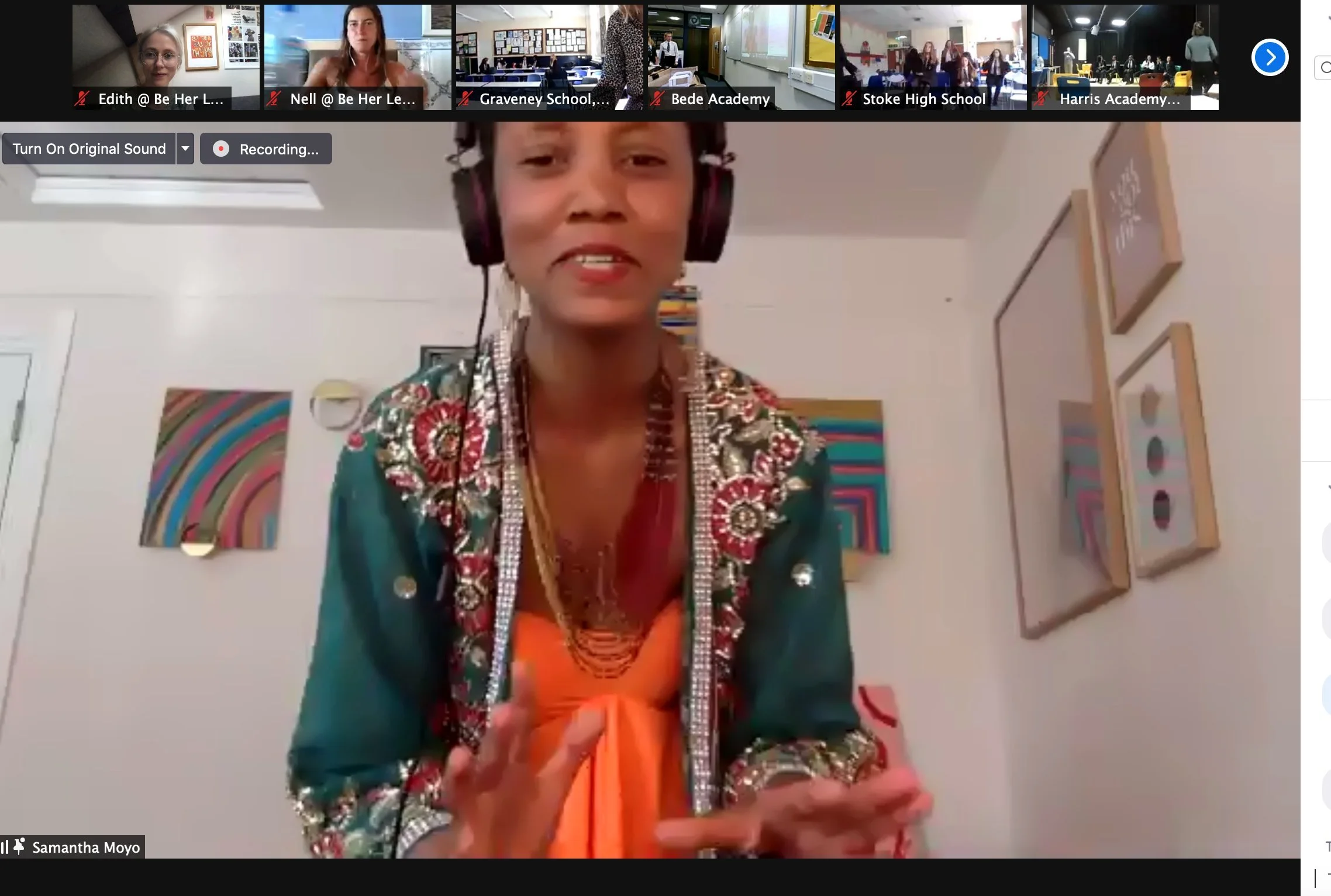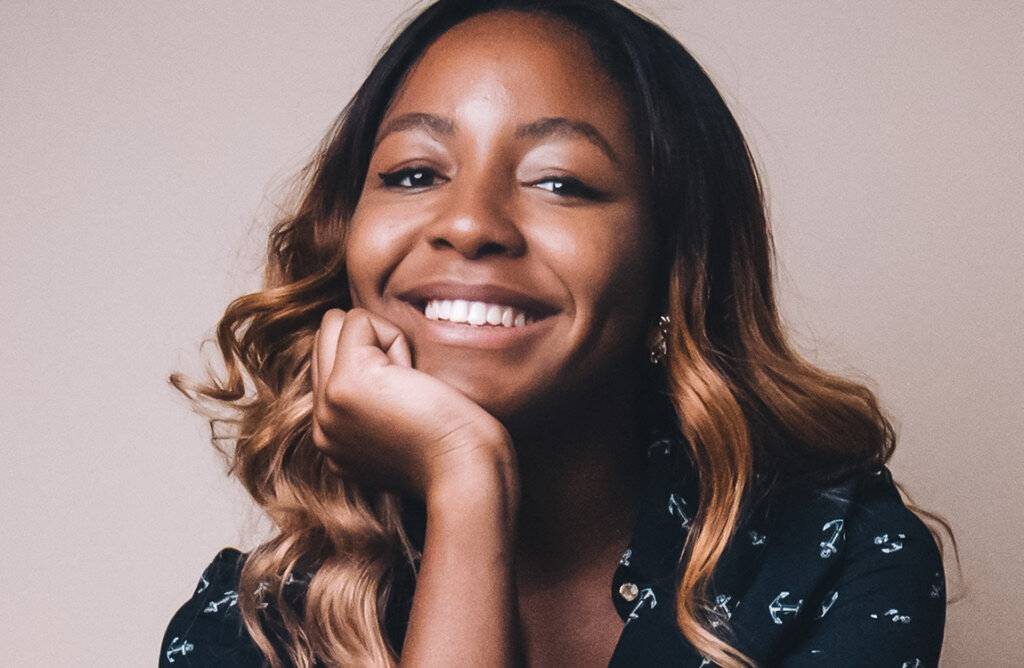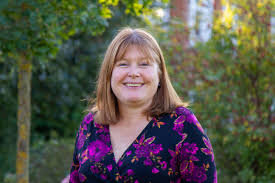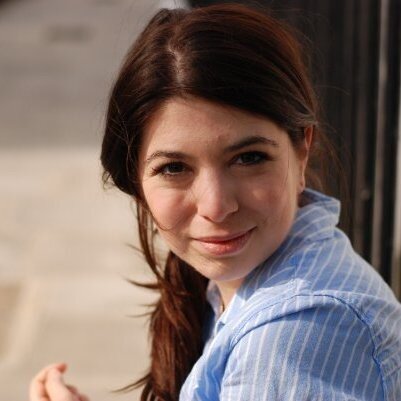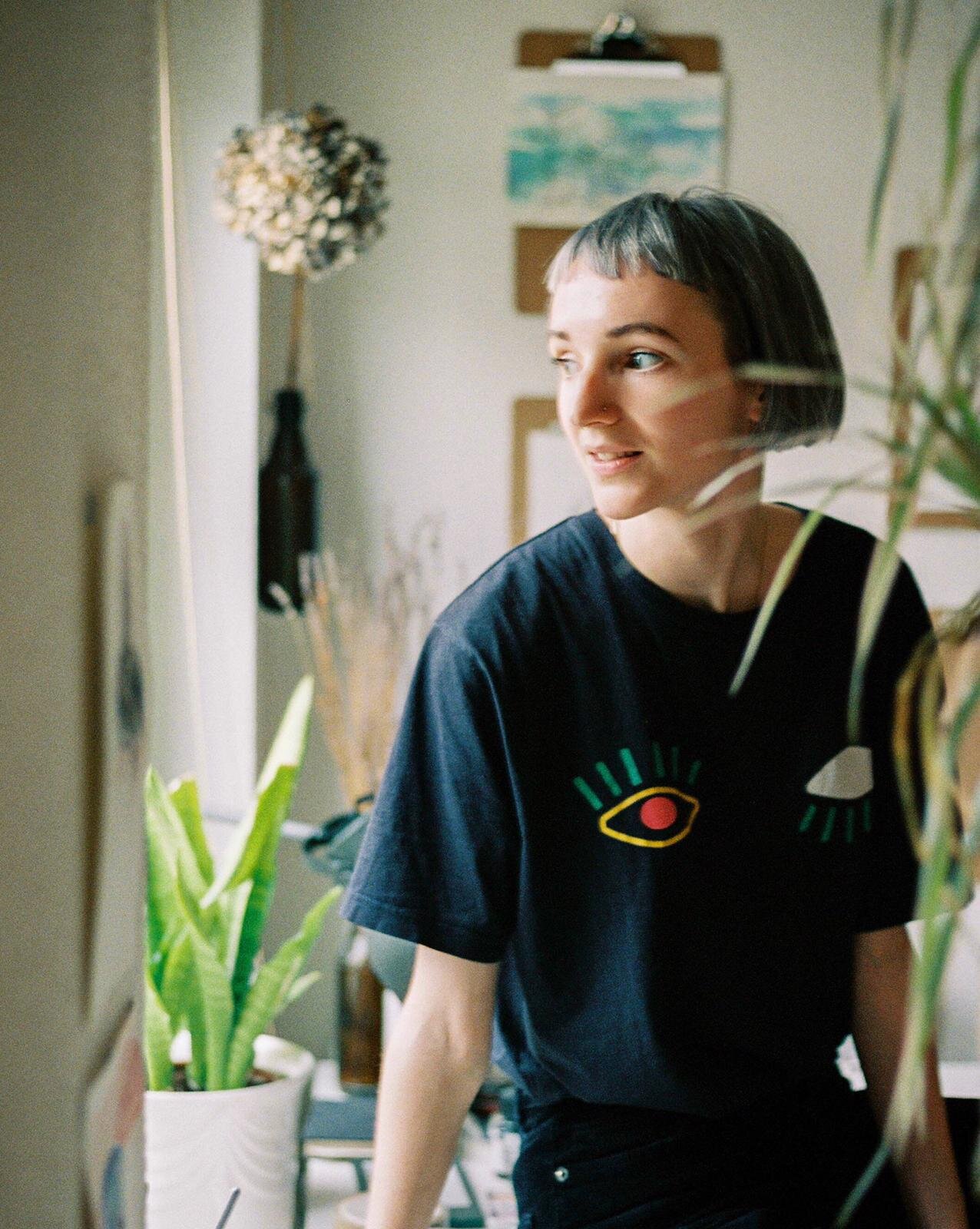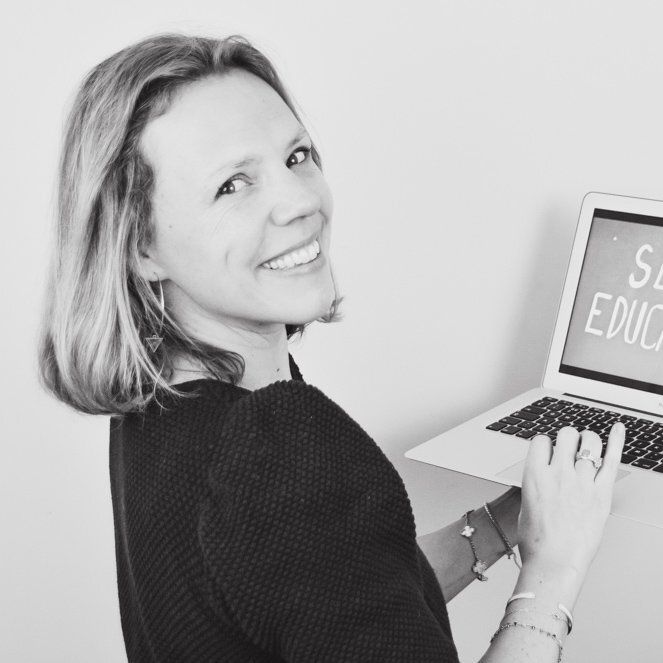workshop 9
Our Champions
Be Her Lead Champion Samantha Moyo meeting Be Her Lead students via Zoom in 2021
overview
At Be Her Lead, we are lucky to have the support of many inspiring women and non-binary people who we call our ‘champions’, who we connect with our students and teachers through school visits and events.
In this workshop, you will explore what it means to be a role model, and think about the people you look up to, and the ways in which you can be role models and champions for each other.
After you have completed this initial sequence, we encourage you to invite champions in to meet your group. This workshop will help you work out what kind of champion would be the best fit for your students’ needs and interests.
YOU WILL NEED
Pen and paper
String and pins
A large pin board, display board or large sheets of sugar paper glued together and laid over a big table
check-in
What is the first word come to mind when you think of a ‘role model’? Try and spell your word(s) out on a neighbour’s back, letter by letter (e.g. Brave, ‘B’, ‘R’, ‘A’, ‘V’, ‘E’).
creative activity:
The group leader begins by introducing a champion, role model or mentor figure from your own life. They could be a relative, peer, colleague or someone in the public eye.
You could bring in a photo of the person and pass them round the circle, or draw a sketch of them up on the board. Surround the images with words related to what makes these people inspiring, either written on the board or on post-it notes on the table.
This is an opportunity to tell some of the story of your life, or offer a glimpse into some of your struggles or past experiences.
Now ask everyone to draw a sketch of their own champion on sheets of blank paper and surround them with words related to what makes them inspiring, plus any decorations you like. You could also have asked the group to bring photos in advance for this.
Next, pin all the sheets of paper onto a board, or paste onto large sheets of sugar. Use string or pens to connect the words and images, showing qualities that different champions have in common.
You should end up with a collage or decorated pin board linking different champions, as well as celebrating their diversity.
discussion prompts
At Be Her Lead we use the word ‘champions’ rather than ‘role models’ because we feel that it does not imply that we have to copy the person, but can celebrate them and learn from them nonetheless. What words does the group use / prefer to talk about people who inspire us?
What similarities and differences are there between the champions we have chosen? What common threads are there that could help us decide some criteria for picking who we want to visit this group?
check-out
In your journals, create a ‘family tree’ showing the different champions or role models in your life, as well as the people who look to you for inspiration. This does not need to be hierarchical; relationships could be two-way, or you could be a role model for someone older than you.
Further reading / thinking
We are cautious of imposing ideas of what a role model should be on Be Her Lead students, especially given that ideas of what constitutes ambition or success are bound up with patriarchal, colonial structures of power. This article explores the risk of offering “an overly simplistic view of girls’ engagements with public figures, and that they recognise neither the contemporary conditions of women’s visibility nor how such conditions regulate girls’ imaginings of power along axes of ‘race’ and class as well as gender.”
This workshop is designed to help you ensure that the champions you invite to meet your Be Her Lead group are relevant to their needs and interests, as well as relatable. An optional follow-up to this workshop could be to ask the students to research potential champions from their local community that could be invited to visit.
We welcome inviting mothers, sisters, grandmothers, staff at the school or in the surrounding community, or reaching out to public figures or influencers the students might follow on social media.

